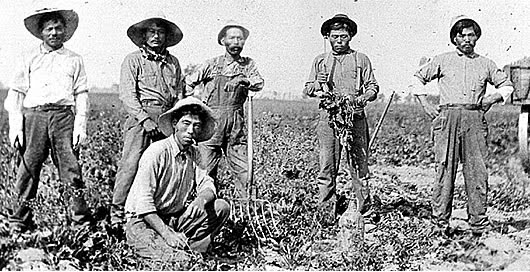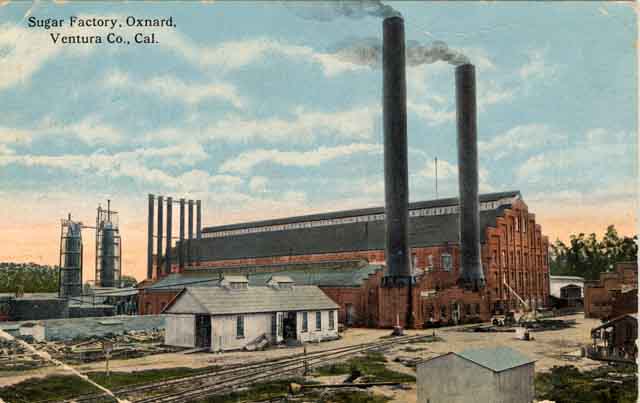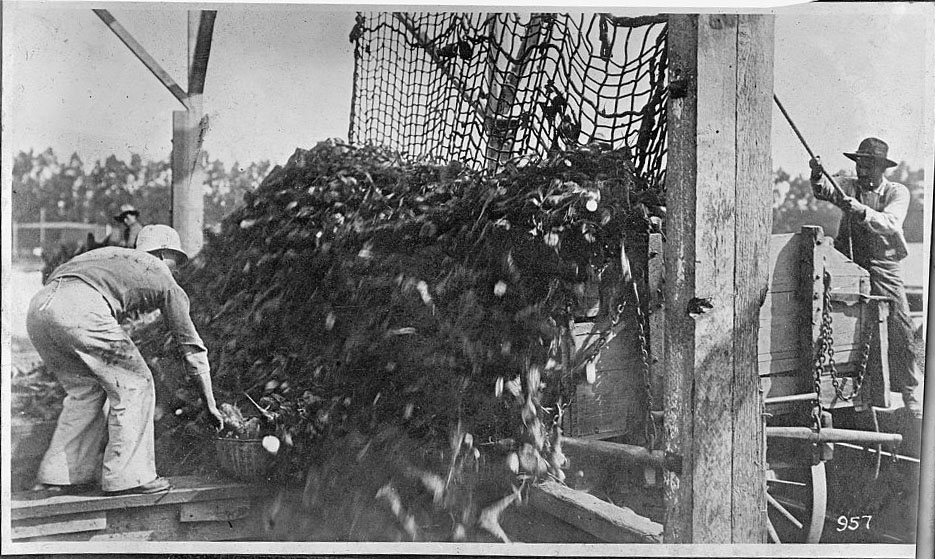
This #LaborDay we’re highlighting some lessons in solidarity from Japanese and Mexican Americans’ 100+ years of shared farm labor history. 🧵 densho.org/catalyst/japan…
While the two groups were on opposing sides in many of these encounters, there were also remarkable instances of unity—like the multiracial union organizing that formed the Japanese-Mexican Labor Association in turn-of-the-century Oxnard, California. 

In 1897, East Coast sugar magnates Henry, James, Benjamin, and Robert Oxnard had founded the American Beet Sugar Company and developed acres of fields on land that had, within recent living memory, belonged to Mexico and Chumash Indians. 

Mexican Americans and Japanese immigrants brought in by labor contractors toiled to thin, irrigate, harvest, and top beets, before transporting them to a massive processing plant where the mostly white workforce would transform them into sugar. 

But when the company hired an outside contractor that sought to reduce their wages, workers rallied in opposition. Around 200 Mexican and 1,000 Japanese workers united as the Japanese-Mexican Labor Association, one of America’s first multiracial labor unions. 

Communicating through interpreters, they negotiated a strategy for action and on February 11, 1903, workers walked off the job. By the end of March, the JMLA’s numbers had grown to 1,300 and frustrated growers brought in scabs to cross the picket lines.
On March 23, 1903, members of the JMLA were attacked by a local anti-union farmer. One man, Louis Vasquez, was killed and four others wounded. The murderous farmer was tried but found to be innocent, sparking the JMLA to take a militant turn.
The movement grew in size and visibility and the American Beet Sugar Company eventually caved to their demands, agreeing to return to the original wage scale. But as the JMLA sought a formal charter as the Sugar Beet Farm Laborers Union, they received an unexpected blow.
The American Federation of Labor would “under no circumstance accept membership of any Chinese or Japanese.” JMLA’s Mexican American members refused this racist caveat and stood by their “Japanese brothers.” Without a charter, the union dissolved soon after.
Power dynamics—and loyalties—shifted over the next several decades, as millions of Mexican laborers continued to come North through the exploitative Bracero Program and Japanese Americans were increasingly able to acquire land, wealth, and citizenship status. 

In 1971, the Nisei Farmers League undermined United Farm Workers strikes by bringing in scabs to cross the picket lines, pointing to their incarceration during WWII as a justification to stand their ground against the UFW.
Generational rifts played out in the radical newsletter Gidra, which encouraged readers to boycott products without a union label, and within the Japanese American Citizens League, where Sansei (third-gen) employees eventually resigned en masse in 1972.
This evolution from comradery to competition illustrates how a “divide and conquer” mentality—supported by racist constructs like the model minority myth—has come to define modern American agriculture and keep workers disenfranchised.
But the JMLA’s interracial alliance in Oxnard in 1903 remains as a powerful example of what can happen when groups unite in solidarity instead of giving into the social forces working to pit them against one another. densho.org/catalyst/japan… #LaborDay #LaborHistory
• • •
Missing some Tweet in this thread? You can try to
force a refresh



